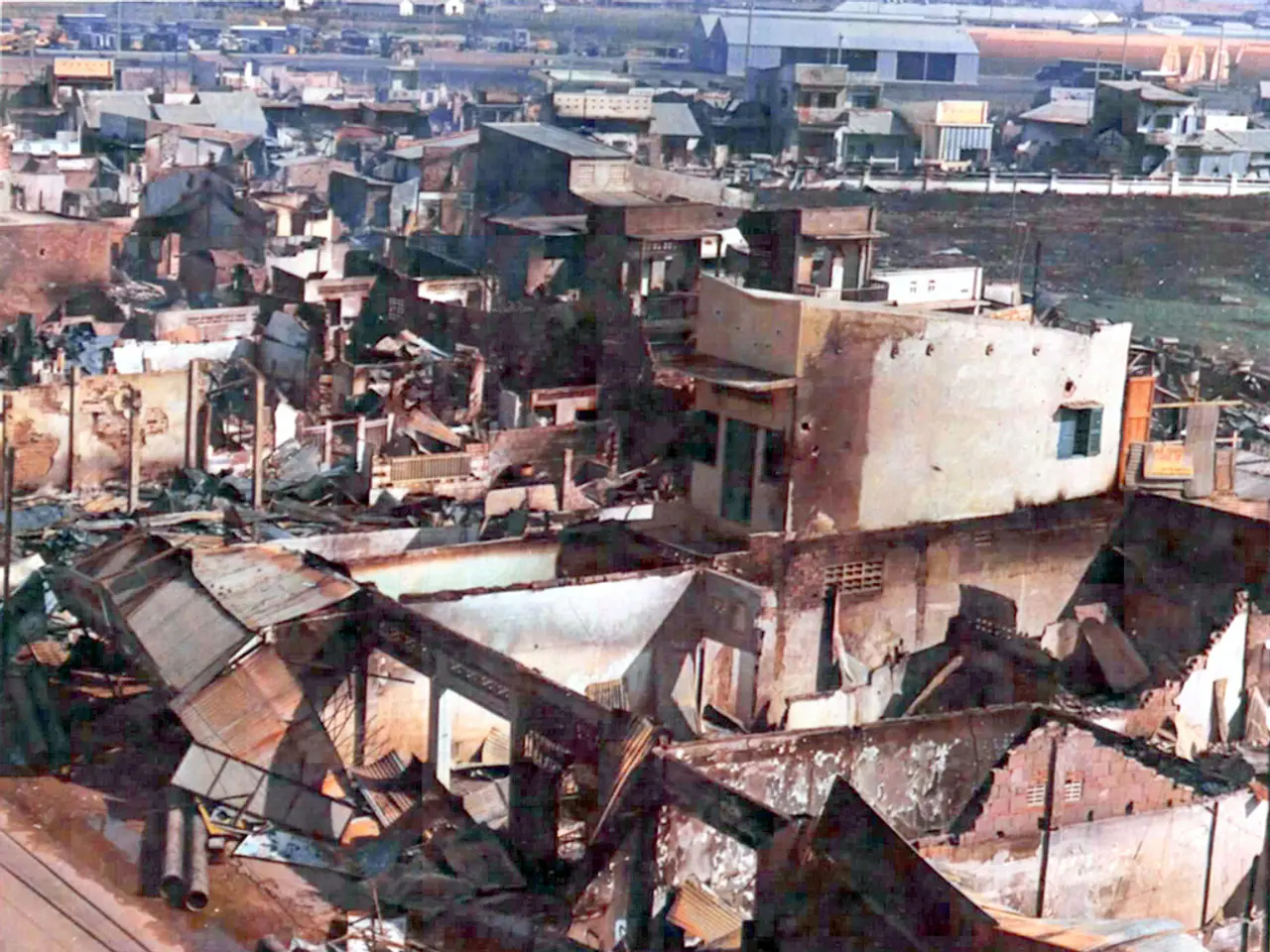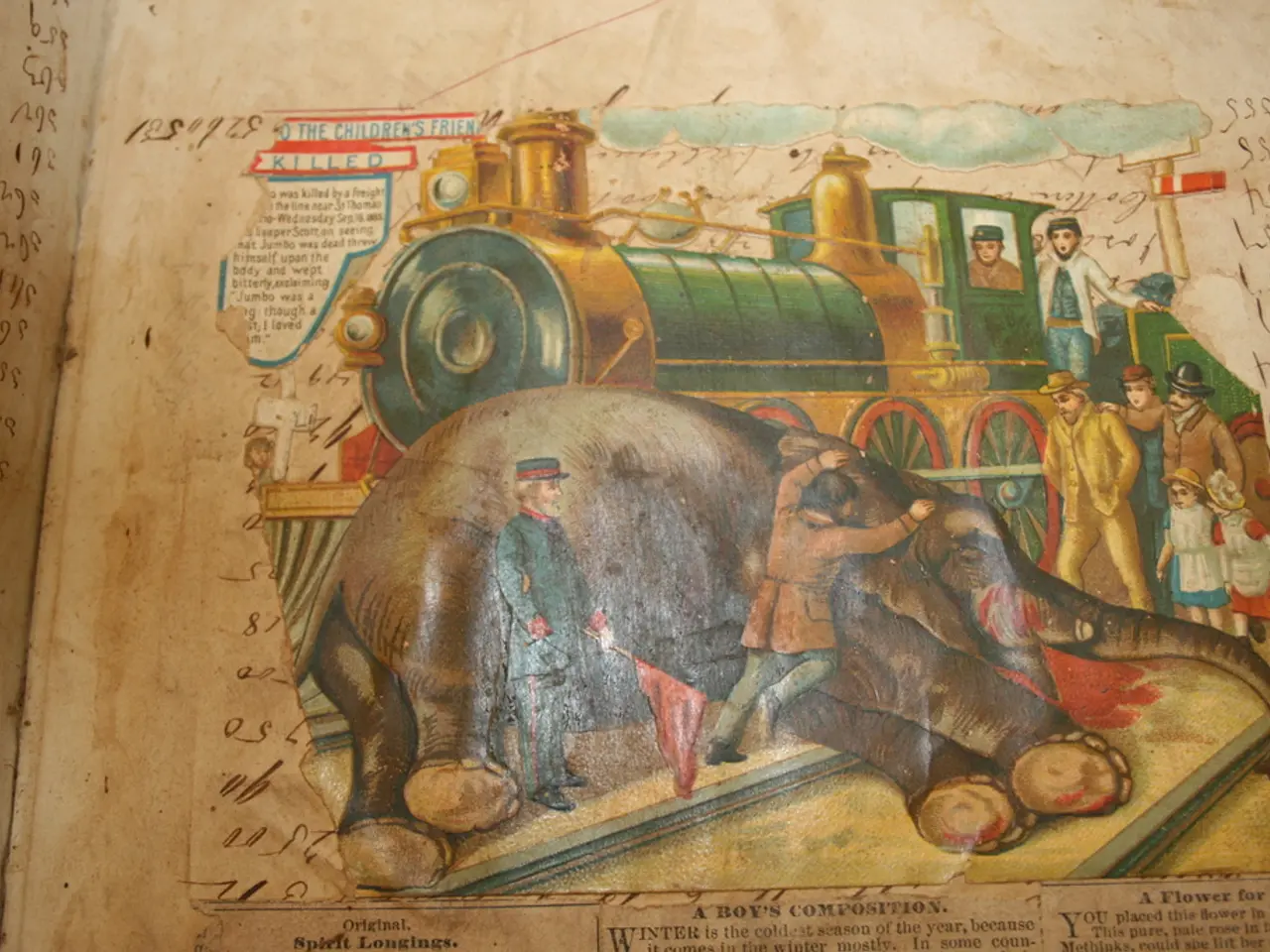"Eight Decades of Hiroshima: The Nuclear Era's Long History"
In the year 2025, nine countries possess nuclear weapons, with a total estimated global stockpile of around 12,241 nuclear warheads. The two dominant powers are Russia and the United States, which together control about 87% of these weapons, each having more than 5,000 warheads [1][4].
The global nuclear framework continues to face challenges, as seen in the case of the Comprehensive Nuclear-Test-Ban Treaty (CTBT), aimed at maintaining a global moratorium on explosive nuclear testing. Although 187 nations have signed the treaty, some key countries have not ratified it, limiting its full enforcement [3]. In recent years, some major arms control treaties have seen strain or collapse, such as the U.S. and Russia withdrawing from the INF Treaty [2].
The role of nuclear weapons in international politics remains significant, acting as a central pillar for deterrence strategies, power projection, and national security doctrines especially for the major nuclear powers. Russia and the U.S. nuclear arsenals particularly shape global strategic balances, while smaller nuclear states influence regional stability. There is an ongoing concern about modernization programs, strategic competition, and the potential erosion of arms control regimes, raising risks of arms races and heightened geopolitical tension [1][3].
One of the most poignant reminders of the destructive potential of nuclear weapons is the atomic bombings of Hiroshima and Nagasaki in 1945. The bombs, which were dropped by the U.S., killed around 80,000 residents in Hiroshima and tens of thousands more in Nagasaki just three days later [5]. Eighty years after these tragic events, the long-term effects of these bombings continue to claim lives, with estimates suggesting that the total number of deaths may be in the hundreds of thousands [7].
Even Japan, which had hundreds of thousands of dead, injured, and severely ill people long after August 1945, is moving away from its pacifist principles and rearming [8]. This shift is not unique to Japan, as voices are being raised in Germany and the EU calling for their own nuclear armament [6].
Russian politicians have repeatedly threatened nuclear strikes in the dispute over the Ukraine war, while Israel has bombed Iranian nuclear facilities allegedly used for weapons production [9]. US President Trump deployed two nuclear submarines closer to Russia, further escalating tensions [10].
The atomic bombings of Hiroshima and Nagasaki serve as a stark reminder of the devastating consequences of nuclear weapons. As the global nuclear arsenal persists, the need for effective arms control measures and diplomatic solutions to resolve conflicts becomes increasingly urgent.
References:
[1] Arms Control Association. (2021). World Nuclear Stockpiles. https://www.armscontrol.org/factsheets/Nuclearweaponswhodevelopshowswhat
[2] The Guardian. (2019). US and Russia withdraw from INF nuclear treaty. https://www.theguardian.com/world/2019/aug/02/us-and-russia-withdraw-from-inf-nuclear-treaty
[3] International Campaign to Abolish Nuclear Weapons. (2021). CTBT. https://www.icann.org/ctbt
[4] Federation of American Scientists. (2021). Nuclear Weapons Arsenals. https://fas.org/issues/nuclear-weapons/
[5] National Museum of World War II. (2021). Atomic Bombings of Hiroshima and Nagasaki. https://www.nationalww2museum.org/war/articles/atomic-bombings-hiroshima-and-nagasaki
[6] Deutsche Welle. (2021). Germany's nuclear ambitions: A dangerous game. https://www.dw.com/en/germanys-nuclear-ambitions-a-dangerous-game/a-58312759
[7] The Conversation. (2015). The long-term effects of the atomic bombings of Hiroshima and Nagasaki. https://theconversation.com/the-long-term-effects-of-the-atomic-bombings-of-hiroshima-and-nagasaki-46142
[8] The Japan Times. (2019). Japan's pacifist constitution under threat as government reinterprets security laws. https://www.japantimes.co.jp/news/2019/12/01/national/japans-pacifist-constitution-under-threat-government-reinterprets-security-laws/
[9] Middle East Eye. (2021). Israel strikes Iranian nuclear facilities in Syria. https://www.middleeasteye.net/news/israel-strikes-iranian-nuclear-facilities-syria
[10] The Diplomat. (2019). US Deploys Two Nuclear Submarines Closer to Russia. https://thediplomat.com/2019/06/us-deploys-two-nuclear-submarines-closer-to-russia/
- The ongoing disputes and conflicts around the world, including the war-and-conflicts in Ukraine, are often intertwined with politics and general-news, as seen in the case of Russia's nuclear threats and the US deploying nuclear submarines closer to Russia.
- The potential rearmament of countries like Japan, Germany, and the EU, along with the modernization programs and strategic competition among major nuclear powers, could significantly influence the international politics and general-news landscape, especially when it comes to war-and-conflicts and arms control regimes.





